We used the latest data and insights to identify the Highest Paying Microbiology Jobs so that you can learn and earn more.
Whether you have an associate degree holder or a Ph.D. in microbiology, you will find a position that will satisfy you and your bank account.
We developed this article using the data from the US Bureau of Labor Statistics and other top sources in this area.
Here are the 10 highest-paying microbiology jobs for you.
Here is a video summary based on this article
Similar Articles:
- 10 Highest Paying Environmental Jobs to Consider
- 10 Highest Paying Forestry Jobs to Consider
- 10 Highest Paying Immunology Jobs to Consider
Table of Contents
#10. Microbiology Laboratory Technician
How much do they get paid?
- Source: Salary.com
- Low Range: $38,218 per year
- High Range: $53,134 per year
- Median Pay: $44,958 per year
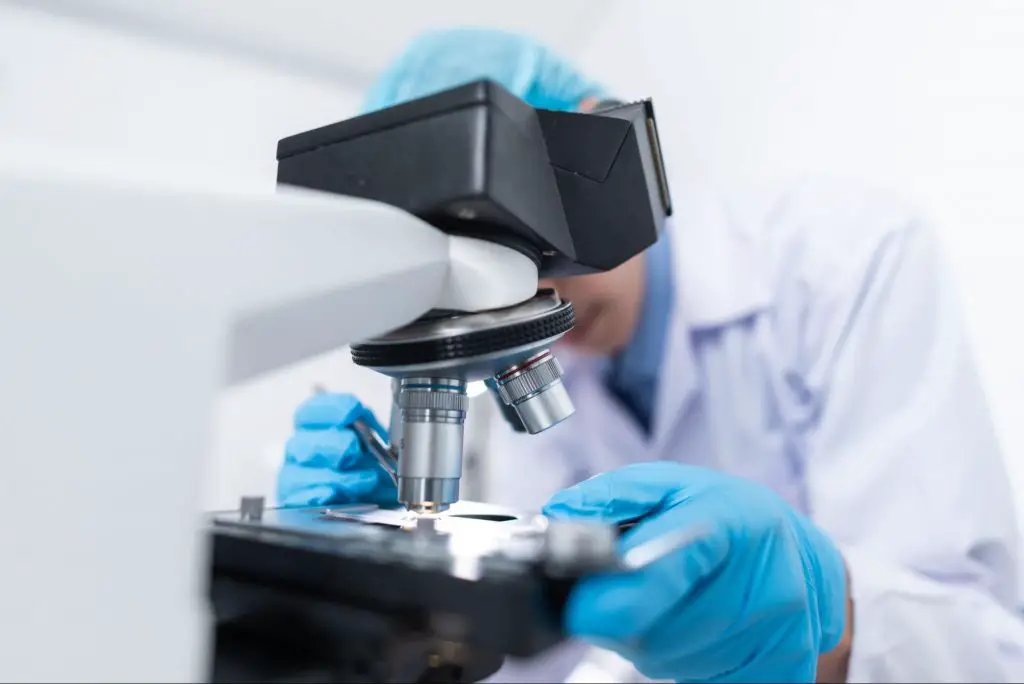
What do they do?
A microbiology laboratory technician is a person who performs laboratory tests on things like bacteria, viruses, and fungi to determine if they’re harmful or not. They may share some roles with medical laboratory technologists.
What degrees and skills are usually required?
You need an associate degree at a minimum to get into this field. However, some microbiology lab technicians have bachelor’s degrees.
Other than education, this field requires several skills. The number one skill that microbiologists need is patience.
Who’s hiring for these jobs?
These medical laboratory technicians work in:
- Hospitals.
- Pharmaceutical companies.
- Universities.
- Research labs.
- Public health departments.
What’s the best way to get this job?
Once you have your degree, you can begin by sending applications for internship opportunities or entry-level positions.
This you do by applying directly through an employer’s website. You can send your resume directly to them via email if they don’t list any openings online.
You might also like:
- 10 Highest Paying Immunology Jobs to Consider 2024
- 10 Highest Paying Medical Science Jobs to Consider
- 15 Highest Paying Biology Jobs 2024
- 10 Highest Paying Jobs For Food Science Majors
- 10 Highest Paying Jobs For Biotechnology Majors
What’s it like to be a microbiology laboratory technician?
#9. Public Health Microbiologist
How much do they get paid?
- Source: Comparably
- Low Range: $11,681 per year
- High Range: $307,504 per year
- Median Pay: $56,313 per year

What do they do?
Public health microbiologists are the people who keep the rest of the world healthy. They work with doctors and nurses to diagnose diseases and monitor patients’ health. These scientists also work on research projects that help us understand how diseases work and how to treat them.
Their work includes identifying the source of outbreaks and patterns of illness. They also develop strategies to prevent and control the outbreaks.
What degrees and skills are usually required?
Public health microbiologists have a bachelor’s degree in microbiology or biology. These scientists also have advanced degrees in this field. They’ve also completed an internship program and have a license.
This job requires strong communication, interpersonal, and problem-solving skills.
Who’s hiring for these jobs?
These microbiologists work in hospitals, but they can also find work in private practice. Still, some work as consultants for businesses that make healthcare products such as drugs and medical devices.
What’s the best way to get this job?
To become a public health microbiologist, you should prioritize getting your education from an accredited university. Then gain experience working during the internship program. Once you have your license, you can start looking for openings in the job market.
You might also like:
- 10 Highest Paying Jobs For Food Science Majors To Consider
- 10 Highest Paying Jobs For Biotechnology Majors To Consider
- 10 Highest Paying Genetics Jobs You Might Not Know
- 10 Highest Paying Immunology Jobs to Consider
- 25 Best Immunology Schools In The US
Should you become a public health microbiologist?
#8. Science Writers
How much do they get paid?
- Source: Salary.com
- Low Range: $50,750 per year
- High Range: $73,822 per year
- Median Pay: $61,857 per year

What do they do?
These professionals write about scientific research, either for magazines or websites. They may write about the history of a particular scientific discovery or an article that explains how society benefits from that discovery.
What degrees and skills are usually required?
Most science writers have degrees in biology or related fields. Those with degrees in journalism are also well-suited because they know how to communicate complex ideas clearly and concisely.
Who’s hiring for these jobs?
Most science writers work for:
- Magazines.
- Websites.
- Universities.
- Research labs.
They can also work as freelance writers, which gives them more freedom to choose their assignments and set their hours.
What’s the best way to get this job?
To get started on this career path, develop your skills by taking a course. Then apply to smaller news outlets to gain working experience.
Should you become a science writer?
You might also like:
- 25 Best Microbiology Schools In The US
- 10 Highest Paying Jobs For Food Science Majors To Consider
- 10 Highest Paying Jobs For Biotechnology Majors To Consider
- 10 Highest Paying Biochemistry Jobs You Might Not Know
- 10 Highest Paying Immunology Jobs To Consider
#7. Clinical Microbiologists
How much do they get paid?
- Source: ZipRecruiter
- Low Range: $28,500 per year
- High Range: $110,000 per year
- Median Pay: $71,928 per year
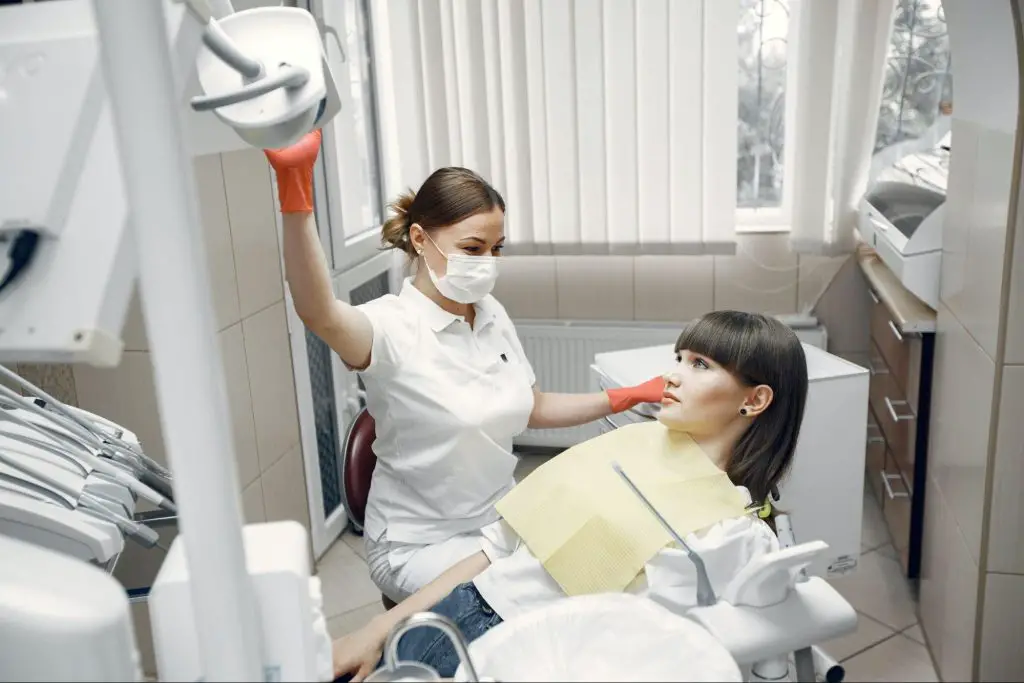
What do they do?
A clinical microbiologist is an expert in microbiology who works with patients to identify and treat infectious diseases. These professionals are trained to identify and diagnose bacteria, viruses, parasites, and other microorganisms that can cause disease. Their expertise is critical for helping doctors prescribe the best treatment for their patients.
What degrees and skills are usually required?
Clinical microbiologists have a bachelor’s degree in microbiology. They also have several years of experience in the field.
There are many different skills that a clinical microbiologist needs to do their job well:
- Critical thinking.
- Communication.
- Problem-solving.
- Time management.
- Knowledge of operating special equipment such as microscopes and centrifuges.
Who’s hiring for these jobs?
Clinical microbiologists usually work in:
- Hospitals.
- Medical centers.
- Private practices.
- Universities.
What’s the best way to get this job?
After earning your bachelor’s degree in microbiology from an accredited school, apply for open positions with hospitals or labs. Then work your way to the top as clinical microbiology is not entry-level.
You might also like:
- 10 Highest Paying Jobs For Biotechnology Majors To Consider
- 10 Highest Paying Immunology Jobs to Consider
- 10 Highest Paying Jobs For Food Science Majors To Consider
- 10 Highest Paying Soil Science Jobs to Consider
- 25 Best Microbiology Schools In The US
Should you become a clinical microbiologist?
#6. Microbiology Research Assistant
How much do they get paid?
- Source: Glassdoor
- Low Range: $36,000 per year
- High Range: $171,000 per year
- Median Pay: $77,134 per year
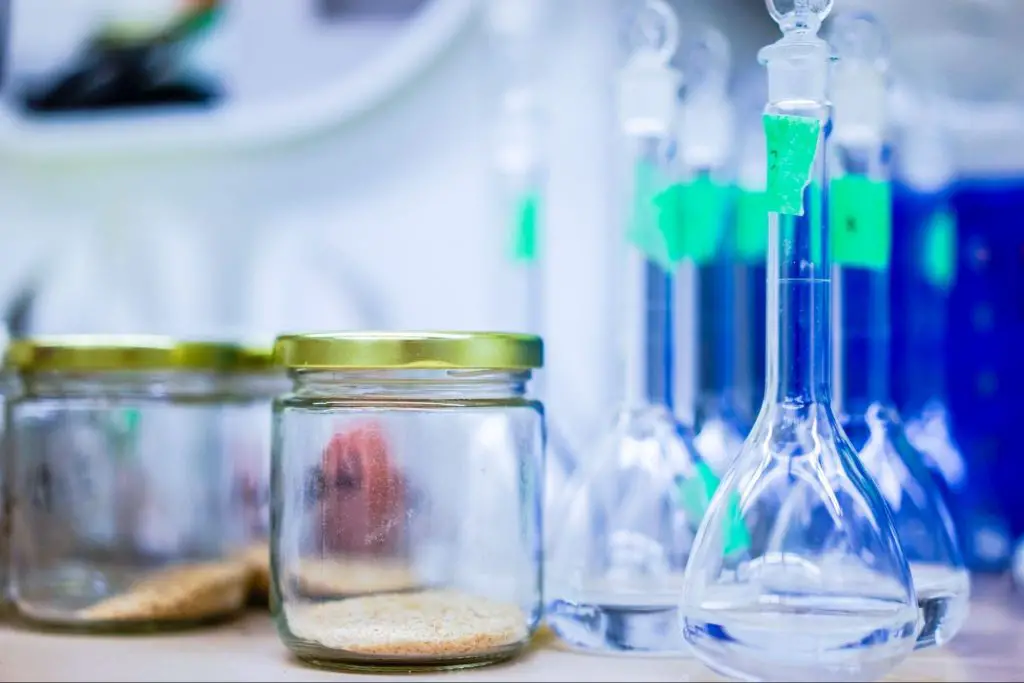
What do they do?
Microbiology research assistants are responsible for collecting data from patients and helping them understand their test results. They may also organize and keep track of the paperwork required by various health organizations.
The medical research assistant has many duties, such as:
- Maintaining records of test results and procedures performed on patients.
- Preparing samples for testing.
- Recording data from tests and experiments.
What degrees and skills are usually required?
Most employers want a bachelor’s degree in biology or chemistry with experience working with laboratory animals or human subjects. But you can also get into this field with an associate degree in chemistry or biology.
You need to pass a certification exam after completing the training courses.
Who’s hiring for these jobs
These research assistants work in:
- Hospitals.
- Research labs.
- Universities.
What’s the best way to get this job?
After becoming a certified medical research assistant, you can start applying for available positions. You should note that networking with people who already have this position is one of the best ways of getting a job.
You might also like:
- 10 Highest Paying Jobs For Biotechnology Majors To Consider
- 10 Highest Paying Jobs For Food Science Majors To Consider
- 10 Highest Paying Immunology Jobs to Consider
- 10 Highest Paying Biochemistry Jobs You Might Not Know
- 10 Highest Paying Earth Science Jobs to Consider
What’s it like to be a research assistant?
#5. Quality Control Microbiologist
How much do they get paid?
- Source: Comparably
- Low Range: $36,000 per year
- High Range: $125,000 per year
- Median Pay: $80,331 per year
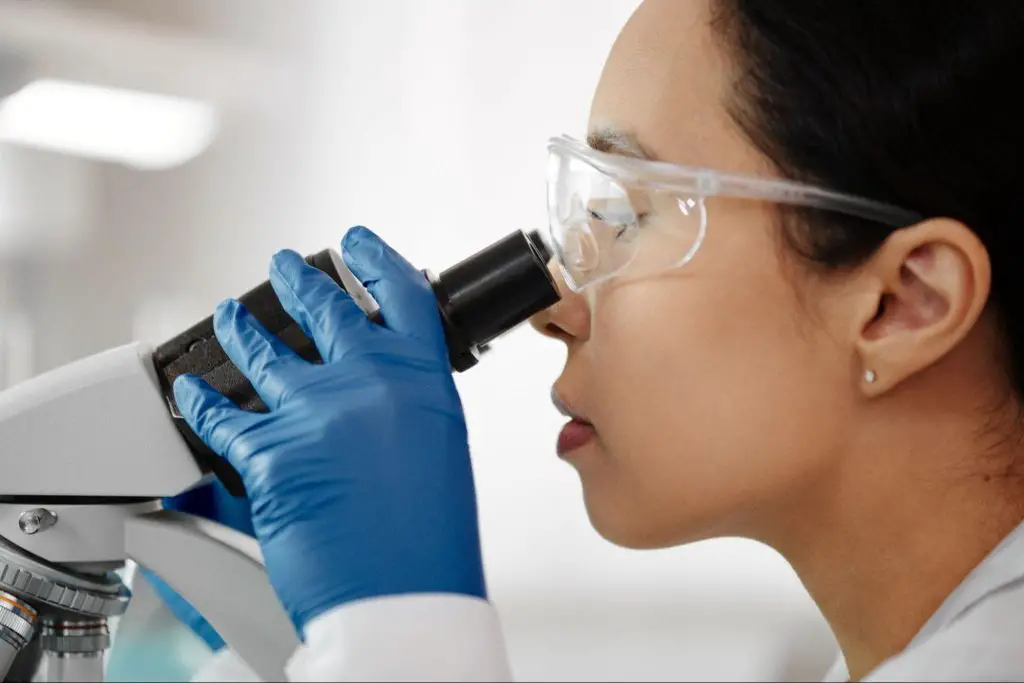
What do they do?
A quality control microbiologist is a scientist who works in food safety, specifically to ensure that food is safe for human consumption. These microbiologists perform laboratory tests on samples of products to ensure they meet standards set by regulatory agencies.
What degrees and skills are usually required?
These professionals have at least a bachelor’s degree in microbiology. You can also get into the field with a degree in chemistry followed by specialized training on-the-job. Many employers will require applicants to have some experience working in labs before considering them for open positions.
Who’s hiring for these jobs?
Quality control microbiologists may find work in:
- Food production plants.
- Water treatment facilities.
- Pharmaceutical companies.
- Government agencies at all levels.
- Research laboratories.
What’s the best way to get this job?
You can start by getting a degree in microbiology or a related field. Once you have your degree, you can apply for entry-level positions and work your way to the top.
Should you become a quality control microbiologist?
You might also like:
- 25 Best Schools For Soil Sciences In The US
- 25 Best Biochemistry Schools 2023
- 25 Best Immunology Schools In The US
- 25 Best Schools For Biology In The US
- 25 Best Microbiology Schools In The US
#4. Biological and Medical Scientists
How much do they get paid?
- Source: Payscale
- Low Range: $41,000 per year
- High Range: $174,000 per year
- Median Pay: $81,792 per year

What do they do?
Biology and medical scientists are experts in the field of biology. They conduct research on how animals, plants, and humans function in their natural environments. They use this knowledge to help with medical problems and treatment options.
What degrees and skills are usually required?
These scientists have at least a bachelor’s degree in biology or a related field. But employers prefer master’s or doctoral degrees for some positions
Biological and medical scientists have:
- Strong problem-solving skills.
- Ability to think critically and analytically.
- Ability to use math skills to make calculations based on data collected.
- Ability to communicate effectively both orally and in writing with other team members.
- Ability to write well. They have to write the research findings.
Who’s hiring for these jobs?
Biological and medical scientists work in:
- Universities.
- Hospitals.
- Labs.
- Government agencies.
They may also be self-employed consultants or entrepreneurs.
What’s the best way to get this job?
To become a biological and medical scientist, you need a bachelor’s degree in biology, chemistry, or biochemistry. You’ll also need extensive research experience and a Ph.D. to advance your career path in this area.
You can get jobs in this field by networking with people in the industry.
Should you become a biological and medical scientist?
You might also like:
- 10 Highest Paying Biochemistry Jobs You Might Not Know
- 10 Highest Paying Jobs For Food Science Majors To Consider
- 10 Highest Paying Jobs For Biotechnology Majors To Consider
- 10 Highest Paying Immunology Jobs To Consider
- 10 Highest Paying Healthcare Jobs (That Require No Medical Degrees)
#3. Medical Laboratory Scientists
How much do they get paid?
- Source: Glassdoor
- Low Range: $30,000 per year
- High Range: $240,000 per year
- Median Pay: $85,452 per year
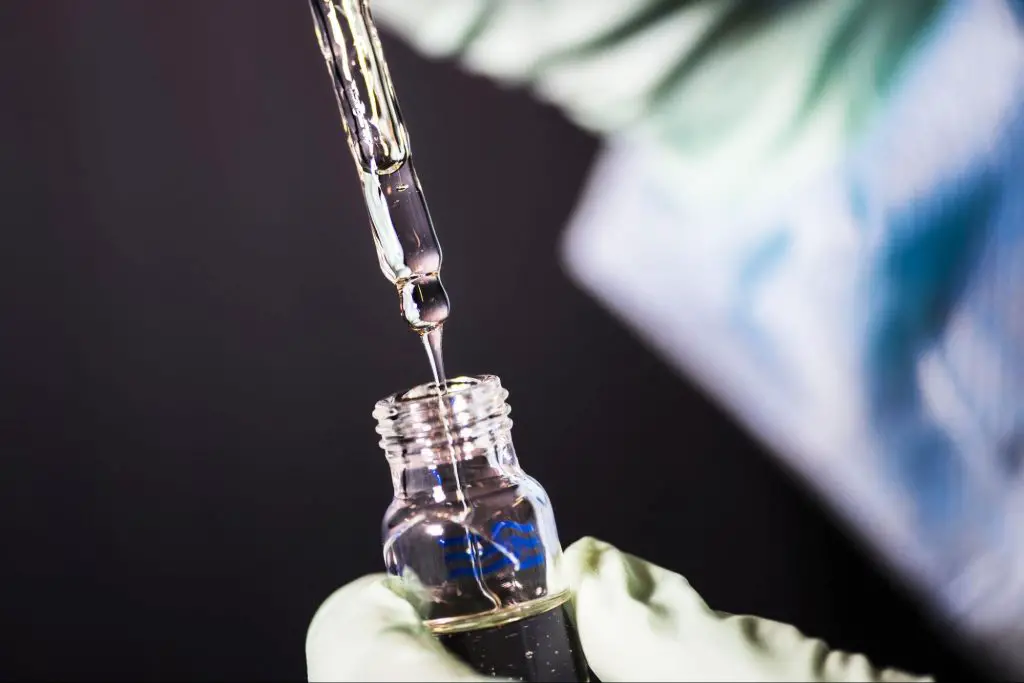
What do they do?
Medical lab scientists analyze human blood and body fluids to:
- Diagnose disease.
- Monitor response to treatment.
- Detect genetic defects.
Who’s hiring for these jobs?
These medical laboratory scientists may work in a:
- Hospital laboratory.
- Commercial laboratory.
- Research facility.
- Government agencies such as the Centers for Disease Control and Prevention.
What degrees and skills are usually required?
Medical laboratory scientists typically need a bachelor’s degree in medical laboratory science, biology, or chemistry. This laboratory personnel also needs some experience before earning certification from the American Society for Clinical Pathology (ASCP). Some employers require candidates to have an advanced degree as well.
What’s the best way to get this job?
To become a medical laboratory scientist, you should start by earning your degree in the required fields. Then start as a lab assistant or technician after your graduation.
What’s it like to be a medical laboratory scientist?
Similar Articles:
- 10 Highest Paying Astronomy Jobs to Consider
- 10 Highest Paying Psychology Jobs to Consider
- 10 Highest Paying Physics Jobs to Consider
#2. Bacteriologist
How much do they get paid?
- Source: Glassdoor
- Low Range: $44,000 per year
- High Range: $203,000 per year
- Median Pay: $93,590 per year
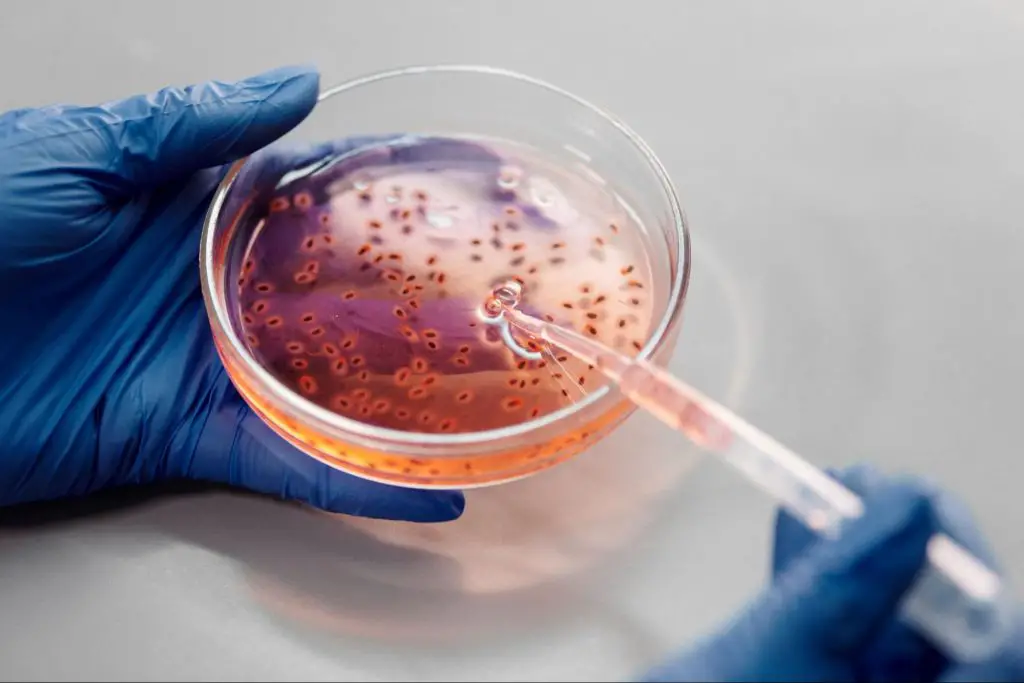
What do they do?
Bacteriologists are scientists who study bacteria, including their biology, classification, and identification. They research the effects of bacteria on people and other organisms.
What degrees and skills are usually required?
To become a bacteriologist you must have at least a bachelor’s degree in biology or microbiology from an accredited college or university. You may also need to take some postgraduate studies. Having lab experience is another plus for this field because it shows that you have worked with real-world situations.
Who’s hiring for these jobs?
Bacteriologists can work in hospitals, research labs, industry, universities, and other places where there is a need for their expertise.
What’s the best way to get this job?
You can get started in this profession by finding an internship at your local university or hospital lab. This will give you the experience that employers look for.
Should you become a bacteriologist?
#1. Microbiology Research Scientist
How much do they get paid?
- Source: Glassdoor
- Low Range: $38,000 per year
- High Range: $245,000 per year
- Median Pay: $96,184 per year
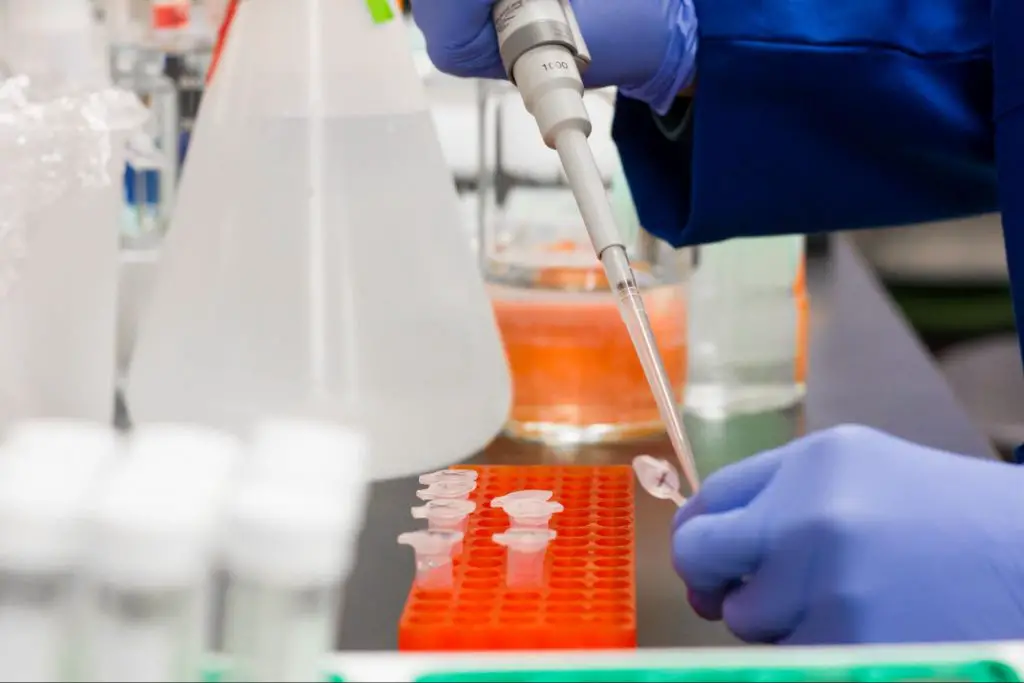
What do they do?
Medical research scientists conduct experiments and analyze data to help develop new technology and medicines. They provide top-notch expertise that helps people live healthier lives.
What degrees and skills are usually required?
Medical research scientists have degrees in biology or chemistry, but they also need experience working in a lab.
They also have advanced degrees such as a master’s or doctorate. Apart from a strong educational background, they also have good observation, analytical, and communication skills.
Who’s hiring for these jobs?
Medical research scientists work for:
- Hospitals.
- Drug companies.
- Universities.
- Government agencies like the National Institutes of Health (NIH).
They may conduct independent research or be part of other research teams.
What’s the best way to get this job?
You need a master’s degree to get into this field. Employers look for candidates with some experience working as an assistant in a lab. You can achieve this by volunteering at local hospitals or schools where experiments are taking place. This will give you an idea of what it’s like to be on the other side of things.
What’s it like to be a research scientist?
Similar Articles:
- 10 Highest Paying Nursing Jobs to Consider
- 10 Highest Paying Veterinary Jobs to Consider
- 10 Highest Paying Social Science Jobs to Consider
Conclusion
As this article has shown, microbiologists aren’t limited to working in laboratories. This field has various positions and a wide range of pay levels in each.
Therefore, microbiology is suited to scientists who conduct diagnostic tests for diseases in the lab. Those who prefer to interact with people outside laboratories also have career options in this field.
Ready to progress in your journey as a microbiologist? Discover a diverse selection of Remote Microbiology Jobs today!

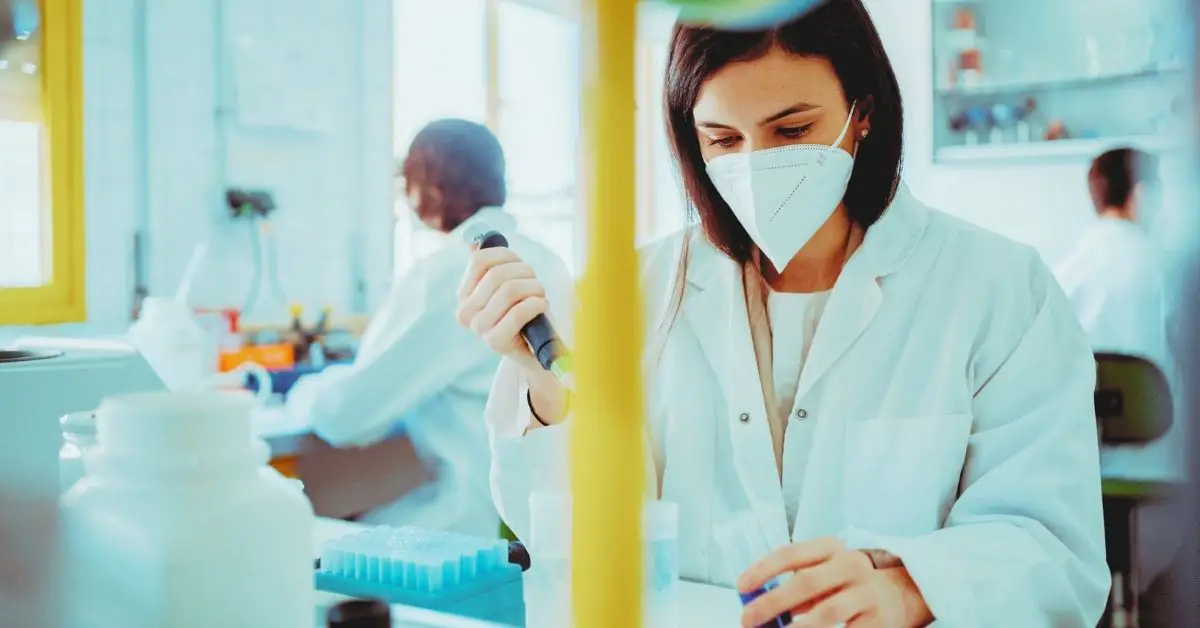

A good article which explains how the whole industry works.
Thank you
Thank you so much. It was of great help.
This is such a helpful article! Thank you
I am very interesting in microbiology, it’s so amazing
i am thankful for this article.i am interested in microbiology and this article give me a little bit enough knowledge about microbiology it’s good for the students and people who are interested in microbiology.
We’re glad that you found our article on microbiology informative and helpful. We understand the importance of providing valuable information for students and others who are interested in the field. Thank you for your feedback, we appreciate it and we’re glad that our article was able to provide you with a little bit of knowledge about microbiology.
Thank you so much for this article. I like Microbiology but I don’t know so much things about that. This article is very helpful for know about that and know about jobs in Microbiology. I loved this.
We’re thrilled to hear that you found the article helpful! Microbiology is indeed a fascinating field with endless possibilities. If you have any more questions or topics you’d like to explore further, feel free to ask. Your enthusiasm for learning about microbiology is inspiring, and we’re glad we could contribute to your knowledge. Thank you for your kind words!